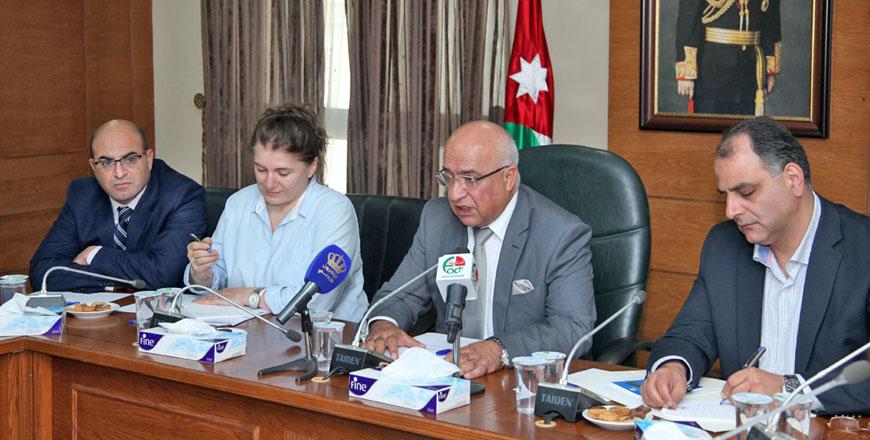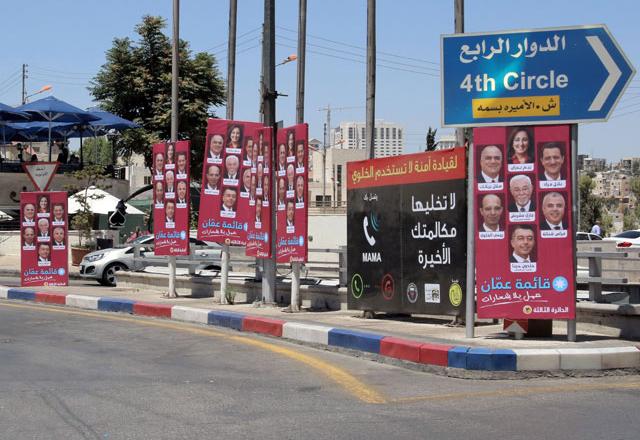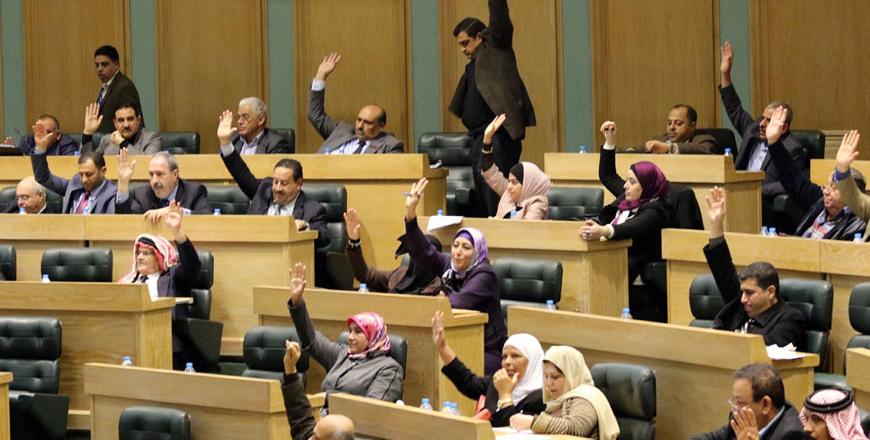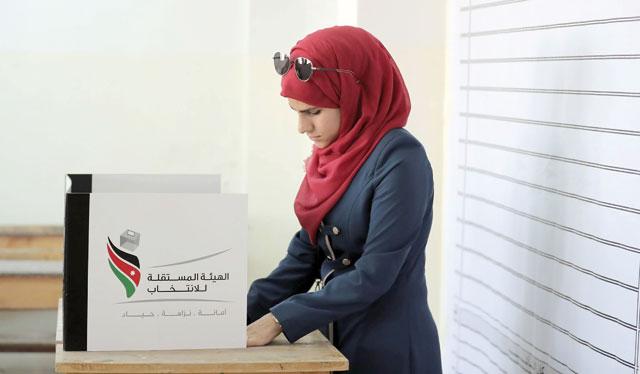You are here
Gov’t pledges support for women’s representation in next Parliament
By Rana Husseini - Aug 07,2016 - Last updated at Aug 07,2016

Minister of Political and Parliamentary Affairs and Minister of State Musa Maaytah speaks during a meeting with women’s rights activists in Amman on Sunday (Photo by Raad Adayleh)
AMMAN — The government on Sunday pledged to support activists’ efforts to ensure a strong representation of women in the upcoming Parliament.
“We are meeting today under the premier’s directives to explore ways to support your efforts and listen to any suggestions you have that would further empower women and ensure strong representation in the upcoming Parliament,” Minister of Political and Parliamentary Affairs and Minister of State Musa Maaytah told representatives of the women’s movement at the ministry premises.
The minister stressed that the Elections Law “is not complicated, and it is meant to strengthen political parties’ role in the country in general, and their presence under the Dome”.
Nuha Maaytah, a former senator and deputy, called on the minister to “support female candidates, because most of the women running are not financially able to pay for advertisements, host events and spend money on other logistical matters related to the elections”.
Laila Naffa, from the Arab Women Organisation, also called on the government to contact local TV stations to allow women “to publicise their campaigns for free and to run election campaign material directed to women for free”.
“Voters should be able to see on local TV the election process and to better understand the new law,” Naffa stressed.
The Elections Law is based on an at-large voting system, in which candidates can run for parliamentary elections on one large multimember ticket.
The law divides Jordan into 23 electoral districts, with one district for each governorate, while the capital contains five districts, Zarqa has two and Irbid has four.
The number of MPs as per the new Elections Law will be 130, including 15 seats for the women’s quota.
The bill reduced the number of Lower House members from 150 to 130 and voting is based on the open proportional list at the governorate or constituency level.
The law also stipulates that each list should include no fewer than three candidates and no more than the number of seats allocated for the constituency in which the list is competing.
Under the proportional electoral system, winning lists will be allocated seats according to the percentage of votes they receive. The seats will be distributed to the ticket members with the most votes.
Each voter can only pick one list and must then select a candidate or candidates from the ticket.
In governorates with only one district, the woman who collects the highest number of votes from the lists will win a seat in the quota, explained Ahmad Ajarmeh, who prepared a booklet to explain the Elections Law.
“If women in the one-district governorates collect more votes than men in the lists, then they will win through direct competition,” Ajarmeh explained.
In governorates with multiple districts, like Amman, Irbid and Zarqa, Ajarmeh told The Jordan Times, “the calculation will differ and it will depend on the percentage of the voters in each district versus the highest percentage that women collect from the voters in their districts”.
Related Articles
AMMAN — The women’s movement has expressed optimism that some female parliamentary candidates could clinch seats outside the 15-seat designa
AMMAN — The Lower House on Tuesday passed the draft 2015 parliamentary elections law with minor changes following six marathon sessions that
AMMAN — Activists on Thursday expressed mixed reactions to the parliamentary election results, as five women won seats outside the 15-seat q



















